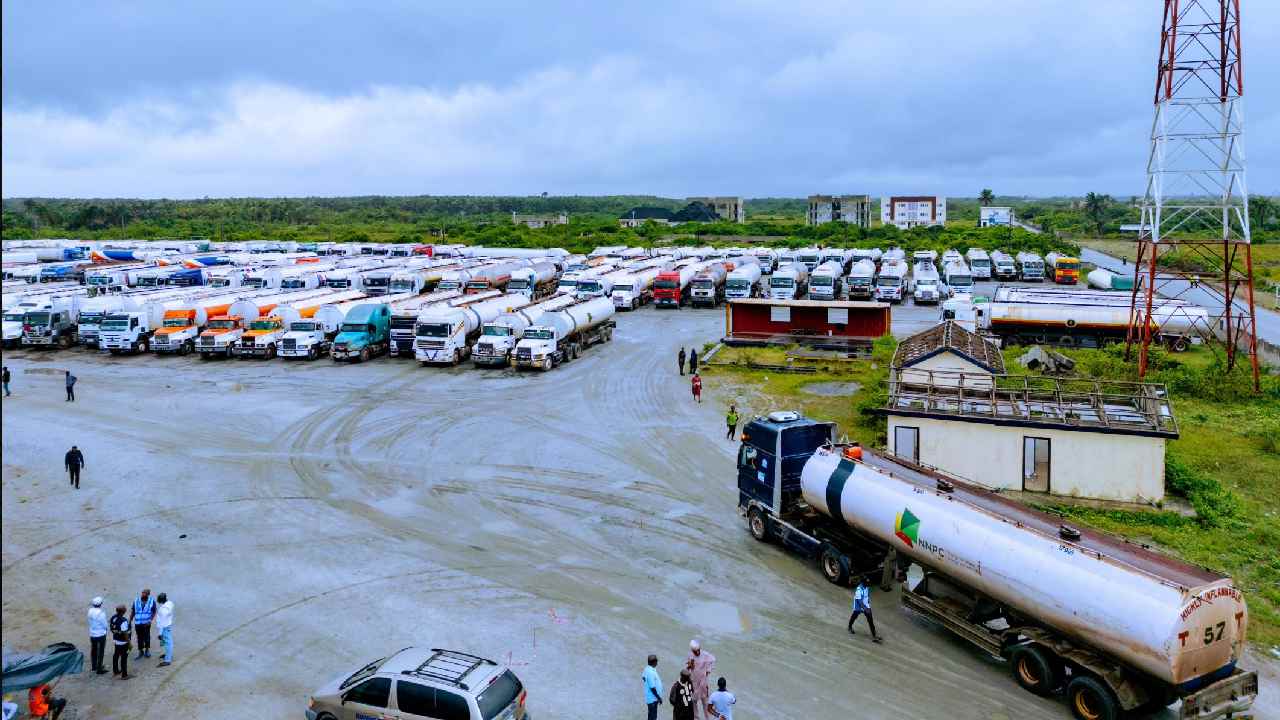
Keep up with latest news and be part of our weekly giveaways and airtime sharing, follow our WhatsApp channel for more update. Click to Follow us
Nigerians were rudely shocked to learn that the Nigerian National Petroleum Company Limited and Aliko Dangote’s Dangote Refinery had raised the price of Premium Motor Spirit (petrol) again, this time to a range of N1030 to N1,200 per liter.
This occurs at the same time that NNPCL raised the price of gasoline at all of its retail locations in Lagos and the Federal Capital Territory, Abuja, from N855 and N897 to N998 and N1030 per liter.
Also, ZINGTIE’s research revealed that the cost of gasoline in Enugu was between N1,200 and N1,300 per liter.
Since the establishment of Dangote Refinery Petrol, which started fuel distribution on September 15, 2024, with NNPCL acting as the only buyer, this is the second raise.
ZINGTIE’s checks revealed that Dangote Refinery, which began at N898 per litre on September 15, 2024, according to NNPCL, rose to N977 per litre.
According to sources aware of the development, the last two months have seen increases in fuel prices at NNPCL filling stations, which have gone from N557 and N617 per litre to N998 and N1,030 due to complete deregulation following the Dangote Refinery’s arrival.
Despite the Nigerian government’s announcement that the Naira-for-crude sale to Dangote Refinery had started on October 1, this development has occurred.
Many Nigerians who are already struggling financially have lost optimism that goods prices will decrease in light of the recent increases in fuel prices.
This occurs a few weeks after Aliko Dangote, the president of the Dangote Group, recommended that the Nigerian government eliminate the fuel subsidy entirely.
This demonstrated how the price of gasoline at the pump has skyrocketed since President Bola Tinubu took office in May 2023.
In particular, it increased from N195 per liter on May 29, 2023, the day the President took office, to N1,030 per litre on October 9, 2024.
Billy Gillis-Harry, President of PETROAN (Petroleum Products Retail Outlets Owners Association), stated in an exclusive interview with ZINGTIE on Wednesday that the most recent increase is proof that the Nigerian government has taken President Aliko Dangote of the Dangote Group’s advice.
“If indeed we listen to Aliko Dangote’s request in his Bloomberg interview on the fact that the president should remove subsidy completely and deregulate the downstream sector, maybe this is one step to ensuring that the Petroleum Industry Act is implemented.
“NNPCL which is the lead in this business is showing that this is the way to go.
“But even at that, if they are selling at N1050 per litre in Port Harcourt, what will now be the landing price to retailers?
“I think the decision is not a bad one because the sector is volatile and prices are fluctuating. Today, it may go higher and tomorrow it may come down”, he said.
The latest increase in fuel prices was attributed to deregulation, according to Chinedu Ukadike, the spokesperson for the Independent Petroleum Marketers Association.
Increase in fuel prices: NLC, CPPE, and NACCIMA demand an immediate halt
In response, the Nigerian Association of Chambers of Commerce, Industry, Mines and Agriculture, or NACCIMA, the Centre for the Promotion of Private Enterprise, and the Nigerian Labour Congress denounced the most recent increase in fuel prices and demanded an expedient reversal.
This was revealed in several declarations.
Joe Ajaero, President of the NLC, bemoaned the fact that the current hike will make poverty in Nigeria even worse.
In a statement made available to ZINGTIE on Wednesday, the Director of CPPE, Muda Yusuf, stated that Nigeria is not yet ready for a complete deregulation of petrol.
On his part, NACCIMA’s National President, Dele Oye, stated that the recent spike is a trigger for further suffering for Nigerians.
This occurs while Nigeria struggles with exorbitant prices for goods and services.
Nigeria’s headline and food inflation rates were 32.15% and 37.52%, respectively, in August.
In the past, rising fuel costs have a direct effect on Nigerian consumer pricing for products and services.
Please don’t forget to “Allow the notification” so you will be the first to get our gist when we publish it.
Drop your comment in the section below, and don’t forget to share the post.







